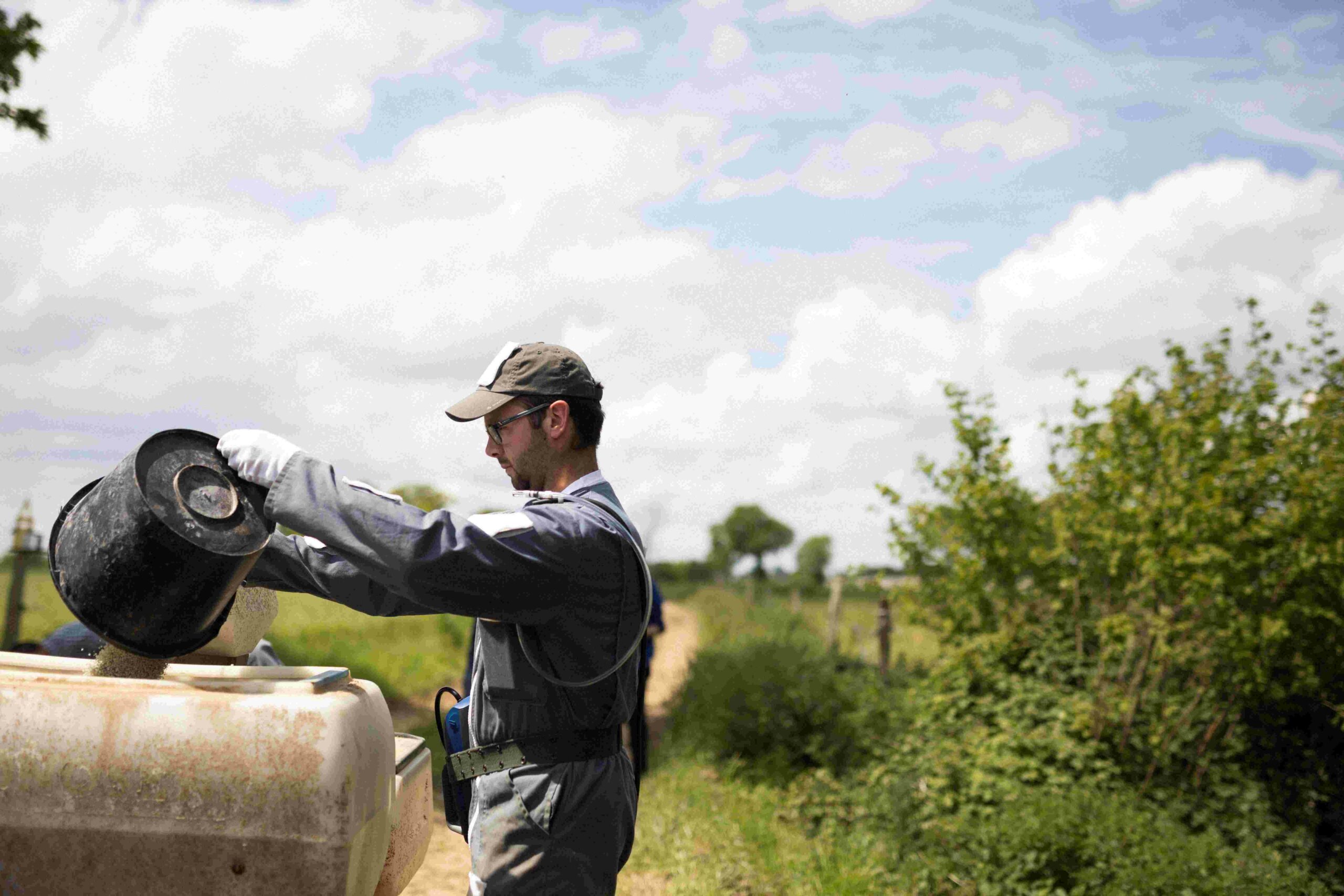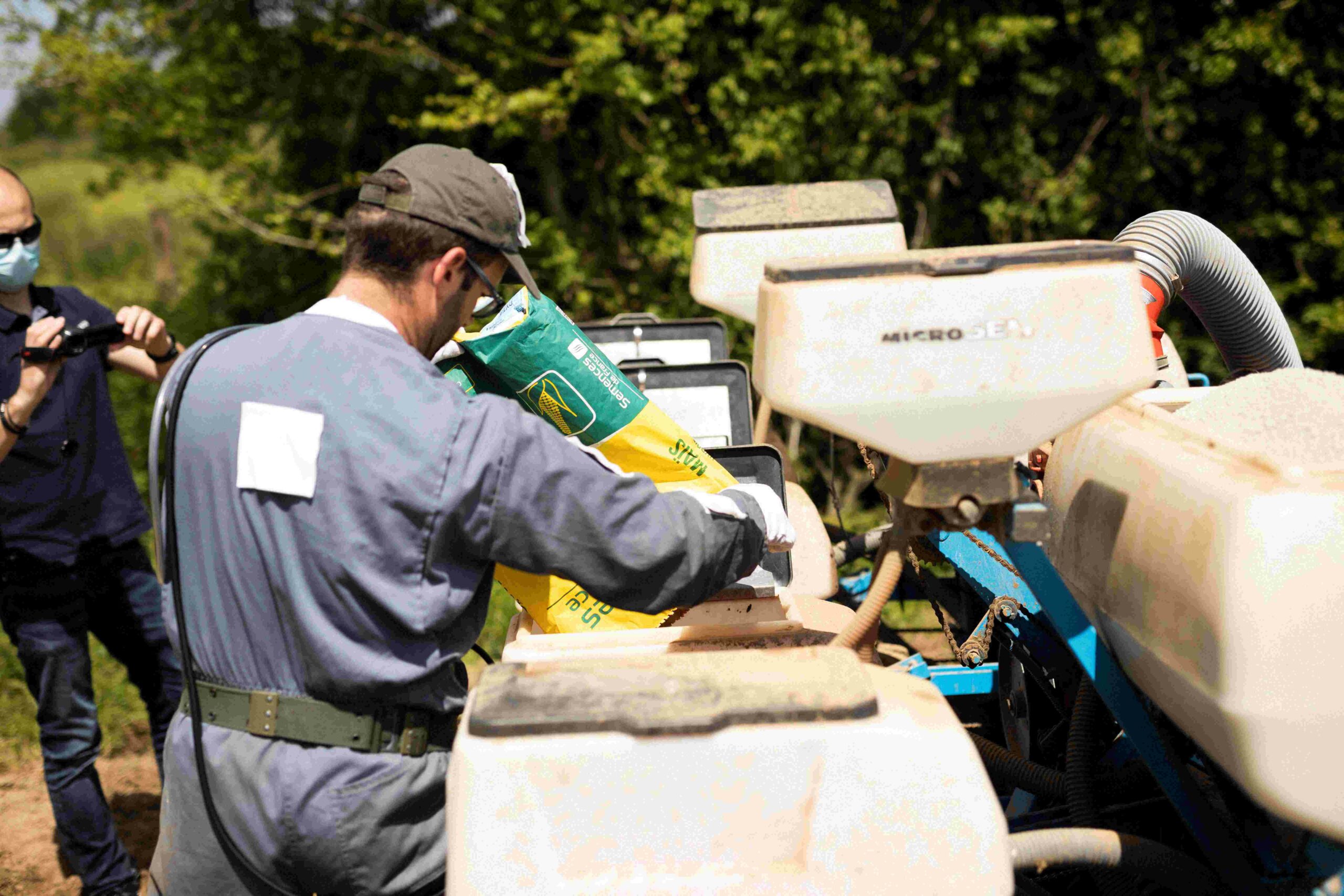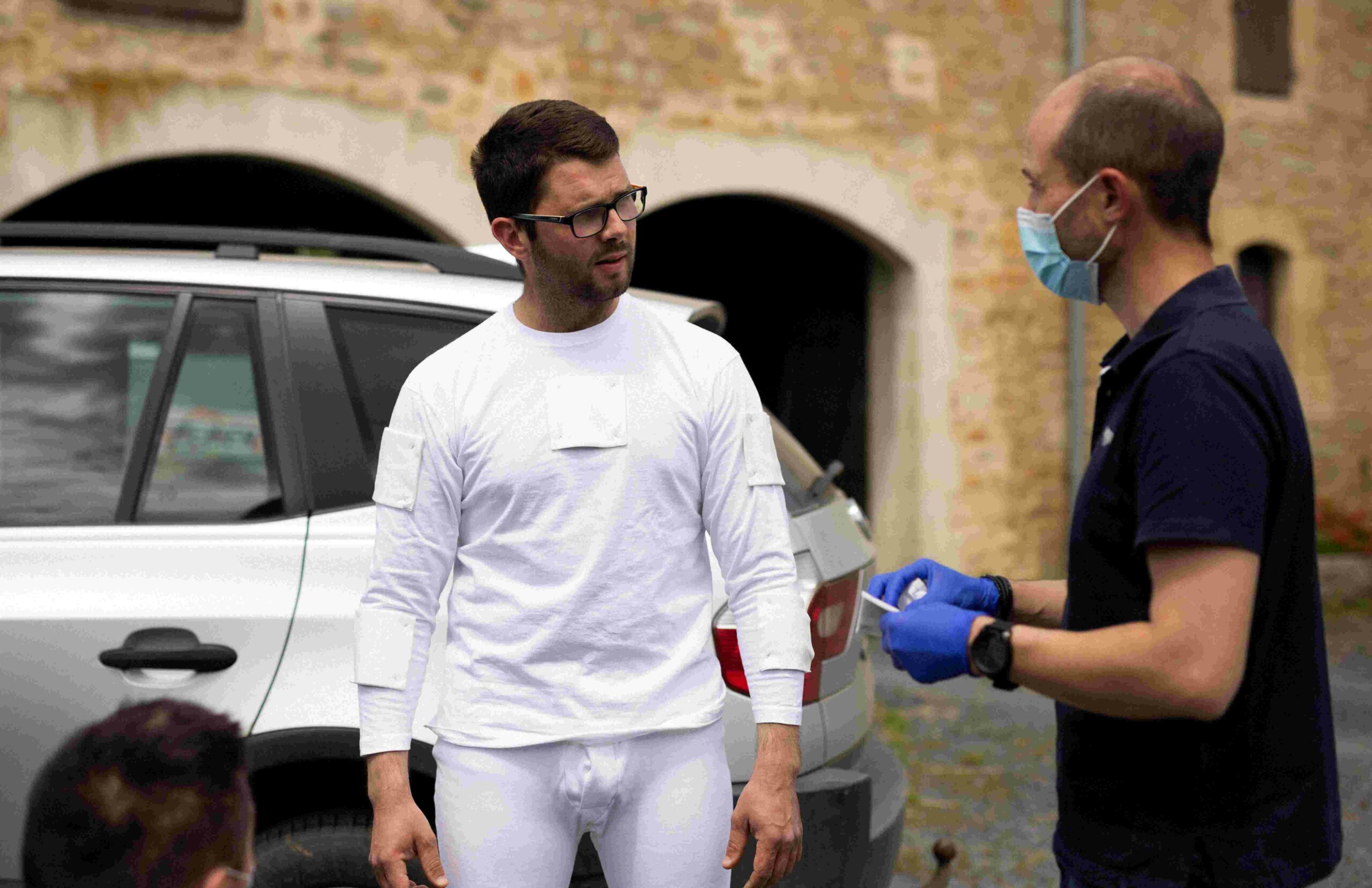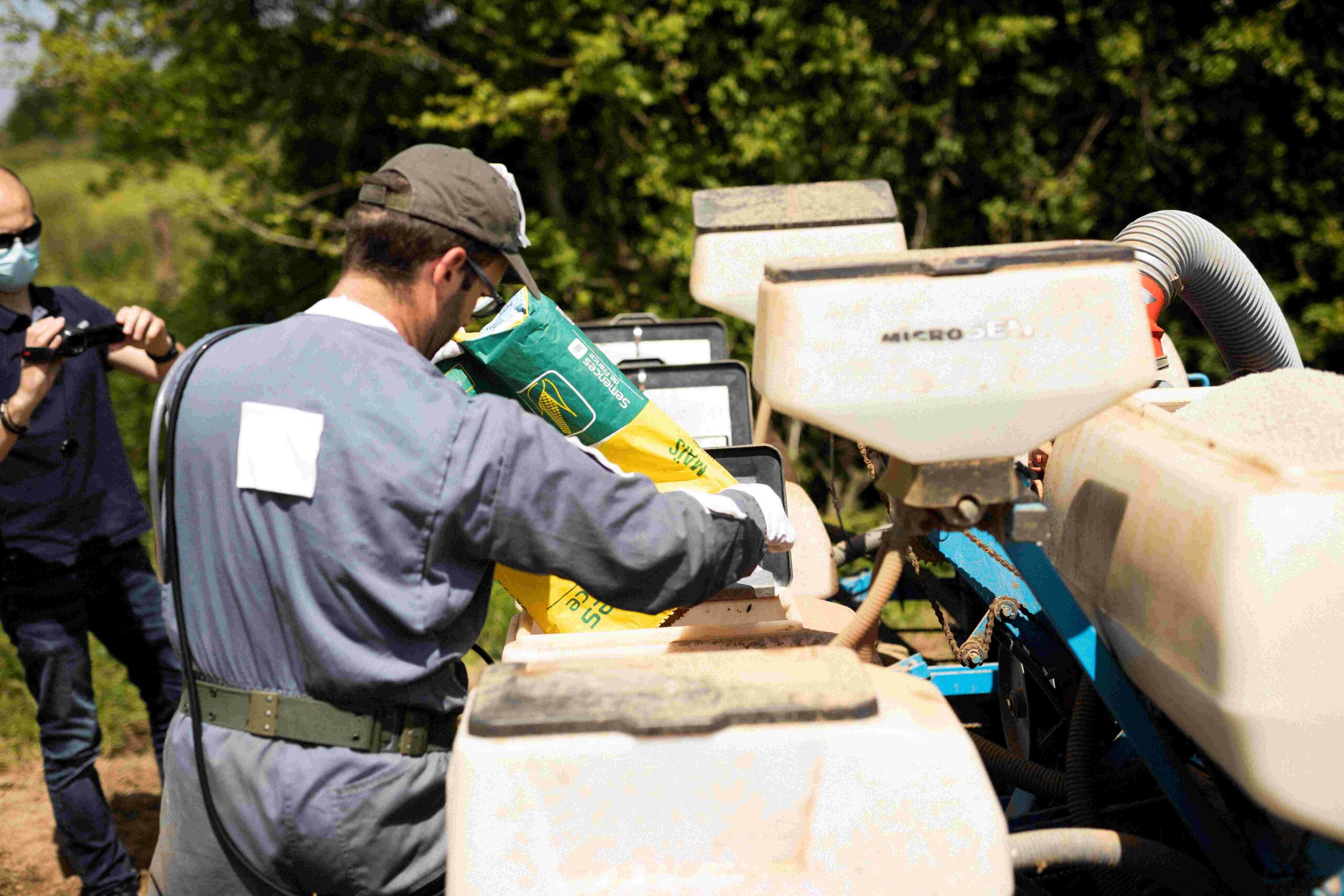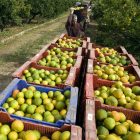Det franske forskningsprojekt Pestexpo undersøgte i efteråret 2021, hvordan pesticider trænger gennem beskyttelsesudstyr. Photo: © Ed Alcock/MYOP for Le Monde. Truslen fra bekæmpelsesmidler i det danske grundvand er vel beskrevet og debatteret. Risikoen for danske landmænd, landarbejdere og gartnere som arbejder med de omdiskuterede midler, er slet ikke kendt. Stol ikke på beskyttelsesmidler, advarer franske forskere.
Agribusiness
The perfect crime: Low risks, high returns, minimal sanctions
|
October 2019 on the Polish–Ukrainian border at Korczowa: An X-ray scan of a refrigerator truck reveals over 600 litres of a strange substance in its tanks. Firefighter pumped out illegal pesticides proved to have a highly toxic effect on water environment. Their net worth exceeded 50 000 Euro. The driver was sentenced a 700€ fine plus loss of the truck. Photo: National Revenue Administration.
Agribusiness
What can be done to stop illegal pesticides
|
Keep records
OECD (the Organisation for Economic Co-operation and Development) has adopted 105 recommendation to its 37 member countries on how to counter the illegal trade of pesticides. The recommendations call for records to keep track on trade, manufacturing, inspections and sale and more. Ask the Chinese
The Chinese Institute for the Control of Agrochemicals, Ministry of Agriculture (ICAMA) can be asked for documentation of exported pesticides, known as the ICAMA 1-pager document. Make the transporter responsible
Delivering companies should be demanded to know what they transport. Know Your Customer (KYC) is a strategy asked for by the producers’ association CropLife International.
Agribusiness
Take aways
|
The European market for pesticides (plant protection products) is worth € 11b per year and equals 350 000 tons. 48 300 tons (13,8 percent) are believed to be illegal, counterfeited or substandard products. The hazards are unknown as authorities only test food sample with residues from single known and registered products, not the cocktail effect of different pesticides. Annual inspections coordinated by EU agency Europol has since 2015 discovered and seized 0,94 percent of the believed to be 48 300 tons spread each year. In six investigated countries all in all 17 seizures of illegal pesticides have been brought to court for the last five year, leading so far to one (1) conviction to jail and one major fine.
Agribusiness
Chlorpyrifos banned by the EU
|
Updated 6th of December 2019 at 17.59
The Member States voted today yes to ban chlorpyrifos from the market. Prohibited
by a vote. Chlorpyrifos and chlorpyrifos-methyl, two pesticides harmful to the
brains of fetuses and young children, are now undesirable in the European Union
(EU). During a meeting of the the Standing Committee on Plants, Animals, Food
and Feed (SCOPAFF) on Friday 6 December, the Member State representatives voted
against the renewal of the authorisation for both insecticides, which was due
to expire on 31 January 2020. According to two sources, the ban on chlorpyrifos-methyl, which was uncertain, got 68.34% of the votes (in such committees, a qualified majority requires 55% of the Member States representing at least 65% of the EU population).
Agribusiness
Producers fight back to prevent pesticides ban: ”EU bows for pressure from NGOs and media”
|
Spain and other citrus-producing countries in EU seems to vote against a ban of chlorpyrifos-methyl on the meeting this week. Oranges from Spain is some of the fruits in EU, where there is a really high risk they are contaminated with chlorpyrifos. These oranges are harvested in the Spanish province, Valencia. EFE/Rubén Francés
The death warrant of a pesticide rarely takes the form of a European regulation. However, later this week the European Commission will ask the Member States to ban chlorpyrifos and chlorpyrifos-methyl, two insecticides causing damages to the brains of foetuses and young children.
Agribusiness
Swedish access laws more secretive than EU-regulations
|
The United Nations Economic Commission for Europe (UNECE) has decided to take a closer look at Sweden’s compliance with UN-rules on information in environmental matters. The decision follows rejection on requested access to document by the Swedish Chemicals Agency and two Swedish courts. Access could
harm Sweden’s participation in international cooperation, the argument went. But
this might run counter to the UN Aarhus Convention, signed by Sweden, 44 other
countries and the EU. In the case of emissions to the environment release of
information should be the default option, the convention states.
Investigations
Commission proposes ban on pesticides while central documents are kept secret
|
Time is running up for chlorpyrifos – the pesticide designed to kill insects, and a cause of brain damage to human fetuses and newly born children. The EU-commission and the food safety Authority (EFSA) have both publicly stated the present approval should not be renewed. Yet a final decision scheduled for December cannot be taken for granted. In 2 August EFSA-experts declared that no detectable residues of chlorpyrifos in food can be accepted. Sometime in September the Commission informed EU-member states it will propose a total ban on chlorpyrifos and related substance chlorpyrifos-methyl at the end of the year.
Agribusiness
Denmark plans import ban on pesticide residues – legal expert calls it mission impossible
|
Danish minister for food Mogens Jensen (Social democrat) has instructed the national food administration to prepare a total Danish ban on food treated with the pesticide chlorpyrifos. Peter Pagh, professor in environmental law at Copenhagen University calls it a blow in the air, as EU-countries cannot ban imports in their own. Henrik
Dammand Nielsen, head of section for chemistry and food quality at Danish
Veterinary and Food Administration (Fødevarestyrelsen) says Denmark has asked
the Commissions for its plans to ban an EU-wide use of chlorpyrifos, and
expects a reply from Brussels within 5-6 weeks. ”If we
haven’t received a reaction we will go forward with preparing a national import
ban,” he explains. These
preparations come parallel to the ongoing process of whether to prolong a
present EU-approval of the pesticide or not.
Agribusiness
EU-experts agree pesticide may damage unborn children
|
There are no safe levels for exposure to the pesticides chlorpyrifos and chlorpyrifos-methyl, EU-experts have found. An EU-ban of the criticised pesticides comes closer. Experts
from EU-member states and staff members at EFSA (European Food Safety Agency)
have published an unusual statement on two controversial pesticides, believed
to cause brain damage on children whose mothers have been exposed during
pregnancy. The pesticides
do not meet the criteria for a renewed approval, EFSA announced
2 August in a statement. The present approvals expire in January 2020.
Investigations
UN Rapporteur on pesticide-states: “They ignore the rights of the child”
|
“This is a clear example of how States around the world aren’t considering the rights of the child when they make decisions on chemicals,” says UN Rapporteur. A pesticide known to cause brain damages in children and fetus is up for re-approval in the EU. If EU-states allow this to continue, it is a breach of the UN Convention of the Rights of the Child, UN Special Rapporteur on toxic waste says. “When you look at chlorpyrifos as a case study, it becomes crystal clear that the UN Convention on the Rights of the Child is being ignored by numerous EU member states when it comes to toxic pollution and contamination”, says Mr. Baskut Tuncak, UN Special Rapporteur on Toxic Waste. The Special Rapporteur refers to recent revelations by Danwatch and Investigative Reporting Denmark along with 7 other media showing how fruits and vegetables sold all over Europe are filled with a pesticide called, chlorpyrifos.
